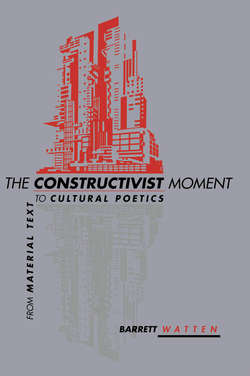Читать книгу The Constructivist Moment - Barrett Watten - Страница 8
На сайте Литреса книга снята с продажи.
1 NEW MEANING AND POETIC VOCABULARY FROM COLERIDGE TO
JACKSON MAC LOW
ОглавлениеUntil then I’ll type out here, surrounded by papers, dictionaries, file folders, notebooks, Coronamatic cartridges.
Is this the word “Coronamatic”’s first appearance in verse?
Would Eliot’ve allowed “Coronamatic” in his verse?
If so, under what circumstances?
– Jackson Mac Low, “56th Light Poem: For Gretchen Berger – 29 November 1978”
Toward a cultural poetics of the material text, I will begin with a construction of “the words themselves.” This chapter charts the development – in American modernist and postmodern poetry – of the use of preestablished, nonauthorial poetic vocabularies for literary composition. While Coleridge’s concept of poetic diction is normative and hierarchical in its selection of appropriate vocabularies for literature, what I am going to call poetic vocabulary is both open-ended and critical, allowing the new meaning of jargons, dialects, idioms, and technical senses into poetry. The emergence of the concept of poetic vocabulary may be discerned in a historicist reading of Coleridge’s account of poetic diction by means of the critical term desynonymy, which I will use to unlink Coleridge’s synthesis of the ethics of new meaning in experimental poetry (at the time, the poetry of the Lyrical Ballads) from his call for a readership of “suitable interpreters” (looking forward to his culturally conservative notion of a national clerisy) who would preserve – and enforce – distinctions between word meanings. Coleridge’s synthesis directly influenced the invention and popularization of BASIC English by I. A. Richards and C. K. Ogden, who wished to reduce the vocabulary of English in order to create a universal second language that would be transparent to new meanings in science, industry, and commerce. Ogden and Richards’s experiment in modern linguistic hygiene was quickly noticed by modernist experimental poets, and in 1932 the expatriate journal transition published a translation of James Joyce’s Finnegans Wake into BASIC, thus placing side by side “the simplest and most complex languages of man.” As a modernist, Louis Zukofsky was also inspired by BASIC’s reduced vocabulary of 850 words, and in turn made literary works using preestablished vocabularies, such as his early experiment “Thanks to the Dictionary.” Zukofsky also wrote a critique of Ogden and Richards’s BASIC and continued to use delimited vocabularies in his experimental texts. In the 1950s, postmodern poet Jackson Mac Low directly incorporated the 850-word BASIC vocabulary in many experimental texts. In his work, vocabularies such as BASIC provide the source text that, through the application of compositional rules, yields the target form of his poetic output. This movement from source text to target form is reenacted in the reading and production of Mac Low’s work according to the careful instructions of his prefaces. In the target forms of Mac Low’s texts themselves, we may identify both an ethics of reading and a notion of community in the arbitrariness and constructedness of his pregiven poetic vocabularies.
